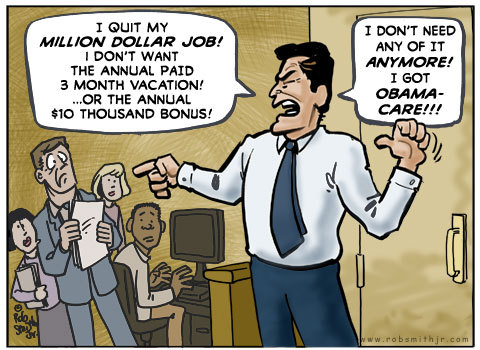|
Boon posted:Compensation, monetary or otherwise, is fundamental to humans and success... since like civilization has been a thing. The crazy thing is that we're not even arguing about what he did as being a good or bad thing or certain people being conceited, we're arguing about the psychology of it. yeah but this guy isn't worried about his personal compensation, he's worried about the compensation his inferior coworkers get as compensation here is standing in as a metric of worthfulness, which is asinine. he's not worried about being rewarded for his effort, he's worried that he's being rewarded unfairly because other people are being rewarded unfairly being jealous of other people who you don't like is not a sound or rational basis for wage policy but it's why people piss all over fast food workers just to have someone to piss on. just because so much of our society is fueled by spite doesn't mean we should excuse or accept that
|
|
|
|

|
| # ? May 5, 2024 11:49 |
|
Luigi Thirty posted:I don't know if we still have a minimum wage thread, but here's what people think about that company that gave everyone a flat raise to $70,000. God, nothing has made me this depressed in ages.
|
|
|
|
The idea that more experience, education, or work effort should command a higher wage does not seem particularly irrational. Indeed most labor unions use at least one of these criteria when establishing wage schedules. Mine uses all three.
|
|
|
|
im a ski bum posted:I'm in Ohio and for the last week or so I've seen a touchy-feely commercial about how great being a Republican is. The ad is slickly produced and has been airing during network prime time. It says paid for by Opportunity New Media, llc. Anyone else seen this or know who's funding it? I hope it's the same people funding the "Iran is terrorists and Obama hates you" commercials
|
|
|
|
chitoryu12 posted:It's an outdated line of thinking that was taught to just about everyone in the last few decades. Minimum wage started as a way to legally keep people from getting paid too little to survive, and it devolved into being derided as "Just for teens making spending money and people too stupid to be successful" and allowed to decrease in value until people today are forced to work multiple minimum wage jobs to survive. All over the country, you're told that making minimum wage is punishment for not being smart or talented or determined enough to get a good college degree and a successful job. Remember how often you were asked in high school "Do you want to be stuck flipping burgers all your life?" as a threat to keep you from slacking off? I tend to have a great comeback for this with my personal situation. I have a job that requires a college degree that pays minimum wage (or near enough to not make a difference). I am a substitute teacher. Tends to shut all but the biggest assholes right the gently caress up..
|
|
|
|
Popular Thug Drink posted:just because so much of our society is fueled by spite doesn't mean we should excuse or accept that Yeup. Culture supersedes our vestigial primate instinct to go Arts & Crafts on people who piss us off, so too can it supersede the instinct to obsess over dominance hierarchies and making GBS threads all over ourselves and others like a bunch of dumbfucks. That article reminds me of a coworker I had at a gas station with $40k in student debt, a general biology degree he wasn't using, a below cost-of-living wage of ~$9.50/hr and a stated opposition to a minimum wage increase to $10. He knew he'd additionally get a raise, but didn't think it was acceptable that new hires make anywhere near him. A self-oppressing poor person, more concerned with place/station than well-being. He still works there and I now make a lot more than does. Maybe I could overawe him with my aristocratic bearing and command he change his attitude? Accretionist fucked around with this message at 23:08 on Jul 31, 2015 |
|
|
|
JeffersonClay posted:The idea that more experience, education, or work effort should command a higher wage does not seem particularly irrational. Indeed most labor unions use at least one of these criteria when establishing wage schedules. Mine uses all three. but this isn't what people are getting pissy about, people are getting pissy because everyone starts at the same high wage. it's messing with the idea that in order to earn enough money to live comfortably you have to scrape and grovel like an apprentice for a while until you prove you're worthy of living a comfortable life which is just a way of proving to other people that you've earned your bread, which is pretty loving dumb when we live in the most prosperous and materially wealthy era in human history so the issue is not that a journeyman makes twice what an apprentice does. the problem is that suddenly the apprentice is making $40 an hour, same as they journeyman, who still has the potential to make even more and probably will but is getting butthurt because someone of inferior job status is getting compensated too generously
|
|
|
|
Popular Thug Drink posted:yeah but this guy isn't worried about his personal compensation, he's worried about the compensation his inferior coworkers get as compensation here is standing in as a metric of worthfulness, which is asinine. he's not worried about being rewarded for his effort, he's worried that he's being rewarded unfairly because other people are being rewarded unfairly I'm not even really sure to which guy you're referring too. quote:Several employees who stayed, while exhilarated by the raises, say they now feel a lot of pressure. “Am I doing my job well enough to deserve this?” said Stephanie Brooks, 23, who joined Gravity as an administrative assistant two months before the wage increase. “I didn’t earn it.” That is a natural reaction. You seem to think that people "should" be happy and content when they're equal and if they're not they're brainwashed or conceipted, but that's not the case. For gently caress's sake a central tenant of socialism is that an individuals compensation is reflective of one's contribution. The people in the article aren't upset that other's wages have been increased, they're upset that their wage increases are not reflective of their work. A blanket 100% across the board hike would have been accepted entirely differently than the blanket $70,000 minimum because it effects lower income worker with low responsibility at a much greater rate than those with higher income with greater responsibility. It's out of sync. Furthermore, wage increases and salary level are do not equate to happiness. I'll post the article from the Harvard Business Review again: https://hbr.org/2013/04/does-money-really-affect-motiv quote:How much should people earn? Even if resources were unlimited, it would be difficult to stipulate your ideal salary. Intuitively, one would think that higher pay should produce better results, but scientific evidence indicates that the link between compensation, motivation and performance is much more complex. In fact, research suggests that even if we let people decide how much they should earn, they would probably not enjoy their job more. There is a lot in that article to coincide with Mr. Price's pay bump. However, the way he approaches the VERY complex issue of managing his labor force is like a drunkard with a hammer rather than a surgeon with a scalpel. I'm not sure why that is even an argument. Boon fucked around with this message at 23:17 on Jul 31, 2015 |
|
|
|
Boon posted:There is a lot in that article to coincide with Mr. Price's pay bump. However, the way he approaches the VERY complex issue of managing his labor force is like a drunkard with a hammer rather than a surgeon with a scalpel. I'm not sure why that is even an argument. I feel like I need to point this out from the HBR article, in case you skimmed over it: quote:We all need to pay our bills and provide for our families — but once these basic needs are covered the psychological benefits of money are questionable. In a widely cited paper, Daniel Kahneman and Angus Deaton reported that, in the U.S., emotional well-being levels increase with salary levels up to a salary of $75,000 — but that they plateau afterwards. The salaries in question here are, at the very best, on the edge of what's considered "too much." No one is being shot up into 1%er territory; we're talking about wages that are basically at the highish end of the middle class. Moreover, most of the employees being quoted in the article are complaining about effects that don't actually exist. Pay, as you point out, isn't a primary motivator for work - so why are these people so concerned that other people in the company will suddenly become demotivated when they don't have to bust their asses for a shot at a raise?
|
|
|
|
Yes I know, I think that the level he took it too is awesome. The problem, as I elaborated on, is that the raise was not equitable which is a tenant in basically every human system, including capitalism and socialism. The concerns expressed are centered around that principle. The article states that money is not a motivator, however, it does delve into money being destructive to actual motivators if it becomes the focus. That is what occurred here. At the end of the day, it may be great. If it fails, we'll most likely never hear of it again. The question of what someone's labor is worth is obviously very difficult probably impossible to define given the variables involved. However, that's not the discussion we're having here. Boon fucked around with this message at 23:40 on Jul 31, 2015 |
|
|
|
Accretionist posted:Yeup. Culture supersedes our vestigial primate instinct to go Arts & Crafts on people who piss us off, so too can it supersede the instinct to obsess over dominance hierarchies and making GBS threads all over ourselves and others like a bunch of dumbfucks. I had pretty good success at overcoming this with one of the data entry kids I work with who is probably paid about $12/hour and resented other people making as much as him for less work. I turned it around and started asking if an hour of his labor was worth $15. We discussed what $15 would buy (a couple shots and a couple beers at the bar down the street, for example). After that, he pretty quickly agreed that an hour of pretty much anyone's time is worth at least what $15 can buy. Anecdotal, but since it'll be on the ballot in Oregon in 2016, I'm trying to help shift the soft opposition.
|
|
|
|
I respect fast-food workers. Sometimes when you go into a Taco Bell or somesuch, you see that there's one gal working the front register, the drive-thru window and the cooking stations simultaneously. That could be a hard job and, if pay were based on difficulty/worthiness versus the caprices of the market, would probably get her paid more than most white-collars.
|
|
|
|
Popular Thug Drink posted:but this isn't what people are getting pissy about, people are getting pissy because everyone starts at the same high wage. it's messing with the idea that in order to earn enough money to live comfortably you have to scrape and grovel like an apprentice for a while until you prove you're worthy of living a comfortable life which is just a way of proving to other people that you've earned your bread, which is pretty loving dumb when we live in the most prosperous and materially wealthy era in human history No, the issue is that the Journeyman thinks it's unfair that his superior skill and experience do not command a higher wage than an apprentice any longer. When workers are allowed to bargain collectively, this is a principle they tend to embed in labor agreements--it's a really common mindset. it can't be hard to see how a journeyman might be pissed if all the new guys got huge raises, while he got a pittance, despite the fact that he's more productive.
|
|
|
|
Boon posted:Yes I know, I think that the level he took it too is awesome. The problem, as I elaborated on, is that the raise was not equitable which is a tenant in basically every human system, including capitalism and socialism. The concerns expressed are centered around that principle. The article states that money is not a motivator, however, it does delve into money being destructive to actual motivators if it becomes the focus. That is what occurred here. the old pay structure was inequitable, this raise was just balancing things
|
|
|
|
PupsOfWar posted:I respect fast-food workers. Nurses would (and should) be making well above 100k if this was the case.
|
|
|
|
Boon posted:Yes I know, I think that the level he took it too is awesome. The problem, as I elaborated on, is that the raise was not equitable which is a tenant in basically every human system, including capitalism and socialism. The concerns expressed are centered around that principle. The article states that money is not a motivator, however, it does delve into money being destructive to actual motivators if it becomes the focus. That is what occurred here. i don't think that 'equitability' is the proper word to use in terms of people reinforcing a social heirarchy through income. like it's not at all equitable that people who work fast food make poverty wages and CEOs can get millions of dollars in performance bonuses for objectively bad performance 'jealousy' would be a better word. people are jealous JeffersonClay posted:No, the issue is that the Journeyman thinks it's unfair that his superior skill and experience do not command a higher wage than an apprentice any longer. When workers are allowed to bargain collectively, this is a principle they tend to embed in labor agreements--it's a really common mindset. it can't be hard to see how a journeyman might be pissed if all the new guys got huge raises, while he got a pittance, despite the fact that he's more productive. if you're getting pissed off that you get a raise, and a guy who works for you gets that same raise, and you get mad and quit before you can get even more raises, that's your problem, because you are jealous and petty neither life nor compensation are fair, and if you turn down a higher paycheck just because someone who is your social inferior gets that same paycheck then maybe you deserve to cripple yourself out of misdirected pride the reason i'm arguing here is not that i don't understand this mindset. i totally get it. i also think it is a very stupid and self-limiting mindset based in the need to feel superior to others
|
|
|
|
JeffersonClay posted:The idea that more experience, education, or work effort should command a higher wage does not seem particularly irrational. Indeed most labor unions use at least one of these criteria when establishing wage schedules. Mine uses all three. Scrap minimum wage and have a national wage schedule. Simplify taxes - end income inequality.
|
|
|
|
Boon posted:Yes I know, I think that the level he took it too is awesome. The problem, as I elaborated on, is that the raise was not equitable which is a tenant in basically every human system, including capitalism and socialism. The concerns expressed are centered around that principle. I think the reason so many of us find this disturbing is because employees in a company are generally in a very bad position to judge what is and isn't equitable. Everyone thinks that they work harder than their neighbor. Everyone thinks that they deserve the raise. When you extend that attitude to "that other guy doesn't deserve a raise" or "I should be making more than her" you end up in a bad situation where people are actively working against the best interests of their colleagues. It's outright damaging when it leads to some people barely scraping by while others live comfortably. Put another way, this is an attempt at rebalancing the wage scale so that it actually is more equitable than it was before. edit- JeffersonClay posted:No, the issue is that the Journeyman thinks it's unfair that his superior skill and experience do not command a higher wage than an apprentice any longer. When workers are allowed to bargain collectively, this is a principle they tend to embed in labor agreements--it's a really common mindset. it can't be hard to see how a journeyman might be pissed if all the new guys got huge raises, while he got a pittance, despite the fact that he's more productive. If people were willing to pay apprentices more, then apprentices would demand higher wages. You're looking at this from some weird position where workers/unions hold 100% of the negotiating power and that's obviously absurd. Mr. Price is willing to pay everyone $70k/year. If you think you're worth more than that, then negotiate for a higher salary. Don't negotiate on the basis that someone else deserves less. Paradoxish fucked around with this message at 23:52 on Jul 31, 2015 |
|
|
|
Popular Thug Drink posted:i don't think that 'equitability' is the proper word to use in terms of people reinforcing a social heirarchy through income. like it's not at all equitable that people who work fast food make poverty wages and CEOs can get millions of dollars in performance bonuses for objectively bad performance It's exactly the proper word to use. You're making this into an argument that it's not. If you want to have a discussion on what are equitable wages in the scope of an entire economy then you're not talking about Mr. Price and his business. Boon fucked around with this message at 23:52 on Jul 31, 2015 |
|
|
|
Boon posted:It's exactly the proper word to use. You're making this into an argument that it's not. If you want to have a discussion on what are equitable wages in the scope of an entire economy, then you're not talking about Mr. Price and his business. you're the person who claimed that everyone getting paid the same high base salary is somehow less equitable than people getting paid variant salaries, friend. i was just making the argument that when you start including people's feelings about how much their coworkers are worth relative to themselves then 'equitable' is no longer the correct term
|
|
|
|
You are either mis-characterizing my argument willfully or you don't understand it because you're arguing something I'm not at every turn. However, since you've characterized it that way, I'll say that yes. Everyone getting paid the same base salary IS less equitable. I'm not sure how that's even up for discussion.
Boon fucked around with this message at 00:03 on Aug 1, 2015 |
|
|
|
As long as you guys are sperging out over worker's pay, wrap your heads around the fact that one guy reached his hand into his pocket, pulled out $10 million and gave to a PAC supporting Ted Cruz. More than a year before the election and a full 6 months before any votes are ever cast, one guy had a enough pocket change to throw $10 million dollars down the toilet on a candidate that everyone hates.
|
|
|
|
I get what Boon's trying to say. The wage increases are great, but instead of raising everyone to 70k, if he had given everyone a 15-20k bump in their salary then their relative position in the hierarchy would've stayed intact while still vastly increasing the quality of life for all employees. Or even 20k for people near the bottom and 10k for the rest. No one's arguing that the wage increase was bad, merely that the way in which it was done created a shock for all the employees who are now dealing with questions of whether or not they deserved it (which is severely hosed up), whether their work is worth more than a janitor but is being valued the same (twisted but understandable in this country), and then of course the assholes who think no one should be paid well who hasn't climbed the hierarchy.
|
|
|
|
The guy and his company are doing fine. He lost some dick employees yet his train is still choo choo chooing. I hate to see your reaction on collectives. I guess people are losing their poo poo because they're so used to white people on tv talk about how the world will end if minimum wages are raised.
|
|
|
|
Boon's approach is called the doctrine of sufficiency. Which while it's not full communism it is a billion times better than our current system of payment and self worth. The idea that people should earn enough to be well taken care of and happy but after that who gives a poo poo isn't immoral or bad.
|
|
|
|
Relentlessboredomm posted:I get what Boon's trying to say. The wage increases are great, but instead of raising everyone to 70k, if he had given everyone a 15-20k bump in their salary then their relative position in the hierarchy would've stayed intact while still vastly increasing the quality of life for all employees. Or even 20k for people near the bottom and 10k for the rest. same, but i'm directly challenging the idea that self worth should be linked to compensation as if your salary is an objective high score on life. this is a terribly dumb thing to think in my personal experience the higher i climb in my career and the more i'm paid the less i have to work and the easier my work gets, i used to clean people's literal death-shits out of crappy linen and now i dick around with computers doing nothing useful for anyone and get paid way more
|
|
|
|
whitey delenda est posted:whatever you got lying around the shed, man!  Rincewinds fucked around with this message at 00:06 on Aug 1, 2015 |
|
|
|
Popular Thug Drink posted:same, but i'm directly challenging the idea that self worth should be linked to compensation as if your salary is an objective high score on life. this is a terribly dumb thing to think That's fine man, but I've already stated I don't think that. The article that I posted twice supports that same idea. Relentlessboredomm posted:I get what Boon's trying to say. The wage increases are great, but instead of raising everyone to 70k, if he had given everyone a 15-20k bump in their salary then their relative position in the hierarchy would've stayed intact while still vastly increasing the quality of life for all employees. Or even 20k for people near the bottom and 10k for the rest. Yes. Thank you. Venom Snake posted:Boon's approach is called the doctrine of sufficiency. Which while it's not full communism it is a billion times better than our current system of payment and self worth. The idea that people should earn enough to be well taken care of and happy but after that who gives a poo poo isn't immoral or bad. I've never heard of that, but I'd be interested if you have any particular reading on it. Boon fucked around with this message at 00:08 on Aug 1, 2015 |
|
|
|
Boon posted:Yes I know, I think that the level he took it too is awesome. The problem, as I elaborated on, is that the raise was not equitable which is a tenant in basically every human system, including capitalism and socialism. The concerns expressed are centered around that principle. The article states that money is not a motivator, however, it does delve into money being destructive to actual motivators if it becomes the focus. That is what occurred here. I'm not sure I see how the raise wasn't equitable. It sounds like pretty much everyone got a raise except the CEO who took a pay cut. However people are bitching because while they're still making more than the entry level worker, the percentage increase in the entry level worker's pay is higher than their percentage increase. Which is pretty dumb and petty. "Carol the new hire now makes $70k(apparently much less at the time people quit over it because it was done via step increases) and I'm making 85K, this is an outrage!" is what I'm taking from the article. It sounds like it's that dumb thing where people would rather make $30K a year while their neighbor makes $10k instead of making $85K while their neighbor makes $70K. Rincewinds posted:This is what Glenn Beck fans actually believe. Well yeah, assuming he's been there a couple years and is decent with his finances he should totally quit that poo poo and retire thanks to Obamacare. Thanks Obama! Gyges fucked around with this message at 00:11 on Aug 1, 2015 |
|
|
|
Just got done listening to a podcast that cited studies showing that people work harder when they get paid more, so it seems like that guy just bought himself some really hard workers and got rid of some dead weight in the deal. Good on him! Also, I'd like to point out that a 'web developer' making ~$40k in Seattle (wasn't it?) is probably so entry level that he doesn't understand basic workplace truisms like that there will be apparently useless people on the payroll everywhere so I'm sure he'll be shocked to see the same thing at his next job.
|
|
|
|
Popular Thug Drink posted:if you're getting pissed off that you get a raise, and a guy who works for you gets that same raise, and you get mad and quit before you can get even more raises, that's your problem, because you are jealous and petty Maybe my experience is distorted because I'm unionized, but at least in a unionized workplace, decisions about who gets what raise and why, and the percieved fairness of those decisions, are really important to some workers. Indeed, fairness is so important that my union prefers to use years of experience and education as the basis for wage differentials rather than more direct measures of effectiveness because the former are percieved to be less susceptible to human bias and thus more fair. It certainly does not surprise me that the effort to flatten the pay scale rankled the higher earners.
|
|
|
|
Gyges posted:I'm not sure I see how the raise wasn't equitable. It sounds like pretty much everyone got a raise except the CEO who took a pay cut. However people are bitching because while they're still making more than the entry level worker, the percentage increase in the entry level worker's pay is higher than their percentage increase. Which is pretty dumb and petty. "Carol the new hire now makes $70k(apparently much less at the time people quit over it because it was done via step increases) and I'm making 85K, this is an outrage!" is what I'm taking from the article. Exactly, it's a bunch of "C" players who derived their self worth from lording it over others who make less.
|
|
|
|
I'm laughing my rear end off at the web developer who quit when he started making $70k because someone else who makes the same amount might be lazier and he, in turn, might become too lazy to pursue his high-minded career ambitions because he's making a really comfortable wage. Washington programmers are some nutty people.
|
|
|
|
Evil Sagan posted:I'm laughing my rear end off at the web developer who quit when he started making $70k because someone else who makes the same amount might be lazier and he, in turn, might become too lazy to pursue his high-minded career ambitions because he's making a really comfortable wage. Washington programmers are some nutty people.
|
|
|
|
It seems like if a person is that petty then rooting them out of your organization is probably going to improve efficiency.Lyapunov Unstable posted:yeah there's a 100% probability he quit for some other reason and just made that poo poo up He probably thought he had a shot at wingnut welfare if he screamed loud enough at local TV cameras.
|
|
|
|
Boon posted:
I wish I wasn't stuck on my laptop but look up Harry Frankfurt and his writings. The basic jist of it is that equality isn't inherently good or bad and rather than attempt to make everyone equal we should focus on making sure everyone has sufficient means. For example people don't give a poo poo of the inequality between a billionaire and a millionaire but people DO care about the inequality of a millionaire compared to a poor person.
|
|
|
|
Venom Snake posted:I wish I wasn't stuck on my laptop but look up Harry Frankfurt and his writings. The basic jist of it is that equality isn't inherently good or bad and rather than attempt to make everyone equal we should focus on making sure everyone has sufficient means. For example people don't give a poo poo of the inequality between a billionaire and a millionaire but people DO care about the inequality of a millionaire compared to a poor person. A good start is making sure there aren't any needless billionaires rolling around as a defacto aristocracy to distort the economy so there are people without.
|
|
|
|
Randy's worried about the Tleilaxu.quote:"Some people are horrified by the idea of having factories where you’d grow babies for their body parts. Will technology allow that? Technology probably almost already does allow that. But should a civilized society allow that? I don’t think so.”
|
|
|
|
You'd think a society where women were relegated to being unthinking baby-making machines would appeal to the conservative id.
|
|
|
|

|
| # ? May 5, 2024 11:49 |
|
Ghola Ronald Regan, they couldn't throw money at the factory fast enough.
|
|
|
































